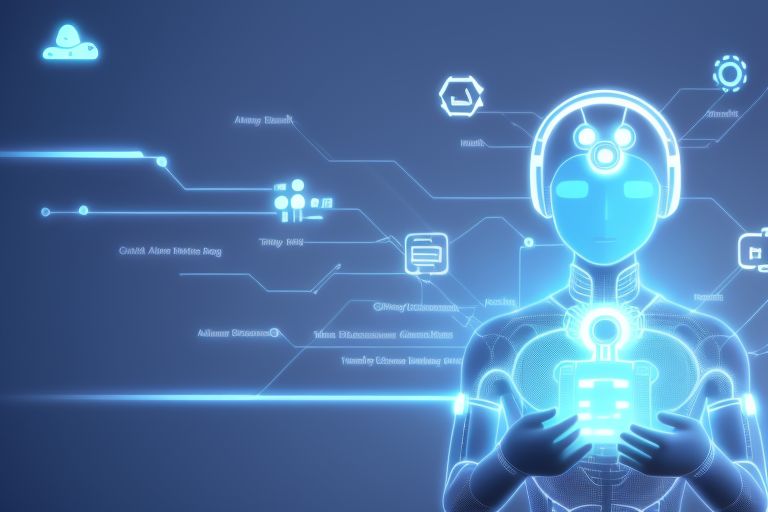Artificial Intelligence (AI) is no longer a futuristic concept—it’s here, transforming industries and reshaping the way we live and work. From healthcare to finance, AI breakthroughs are pushing the boundaries of what’s possible. In this article, we’ll explore the latest advancements in AI, their real-world applications, and how they’re revolutionizing our world. Whether you’re a tech enthusiast or a business professional, understanding these innovations is crucial to staying ahead in today’s fast-paced digital landscape.
The Rise of Generative AI
Generative AI has taken the world by storm, enabling machines to create content that mimics human creativity. Tools like OpenAI’s GPT-4 and DALL·E 3 are at the forefront of this revolution. GPT-4, for instance, can generate human-like text, write code, and even compose poetry. Meanwhile, DALL·E 3 can create stunning visual art from simple text prompts. These advancements are not just impressive—they’re practical. Businesses are leveraging generative AI for content creation, marketing, and customer service, saving time and resources while delivering high-quality results.
Real-World Applications of Generative AI
Generative AI is already making waves across various industries. In healthcare, it’s being used to design new drugs and predict patient outcomes. In entertainment, it’s creating personalized content for audiences. For example, Netflix uses AI algorithms to recommend shows based on user preferences. Similarly, Adobe’s Firefly tool allows designers to generate unique visuals with just a few clicks. The possibilities are endless, and as the technology evolves, so will its applications.
AI in Healthcare: Saving Lives with Precision
AI is revolutionizing healthcare by enabling faster, more accurate diagnoses and personalized treatment plans. One of the most significant breakthroughs is the use of AI in medical imaging. Algorithms can now detect diseases like cancer with remarkable accuracy, often outperforming human radiologists. For instance, Google’s DeepMind has developed an AI system that can identify breast cancer from mammograms with fewer false positives and negatives.
AI-Powered Drug Discovery
Another groundbreaking application of AI in healthcare is drug discovery. Traditional methods of developing new drugs are time-consuming and expensive. AI, however, can analyze vast amounts of data to identify potential drug candidates in a fraction of the time. Companies like Insilico Medicine are using AI to accelerate the development of treatments for diseases like Alzheimer’s and cancer. This not only speeds up the process but also reduces costs, making life-saving medications more accessible.
AI in Finance: Smarter Decision-Making
The finance industry is also benefiting from AI advancements. From fraud detection to investment strategies, AI is helping financial institutions make smarter decisions. Machine learning algorithms can analyze transaction patterns to identify fraudulent activities in real-time. This not only protects consumers but also saves companies billions of dollars annually.
AI-Driven Investment Tools
AI is also transforming the way we invest. Robo-advisors, powered by AI, provide personalized investment advice based on an individual’s financial goals and risk tolerance. Platforms like Betterment and Wealthfront use AI to manage portfolios, ensuring optimal returns with minimal human intervention. Additionally, AI algorithms can predict market trends, helping investors make informed decisions and maximize profits.
AI in Education: Personalized Learning Experiences
Education is another sector where AI is making a significant impact. Personalized learning platforms use AI to tailor educational content to individual students’ needs. For example, Khan Academy employs AI to provide customized lessons and practice exercises, ensuring that students grasp concepts at their own pace. This approach not only enhances learning outcomes but also keeps students engaged.
AI-Powered Tutoring Systems
AI-powered tutoring systems are also gaining popularity. These systems can provide instant feedback, answer questions, and even adapt to a student’s learning style. For instance, Carnegie Learning’s MATHia platform uses AI to offer personalized math tutoring, helping students improve their skills in a supportive and interactive environment. As AI continues to evolve, it’s likely that we’ll see even more innovative solutions in the education sector.
Ethical Considerations in AI Development
While the benefits of AI are undeniable, it’s essential to address the ethical concerns surrounding its development and use. Issues like data privacy, algorithmic bias, and job displacement need to be carefully managed. For example, AI systems trained on biased data can perpetuate discrimination, leading to unfair outcomes. Similarly, the automation of jobs by AI could lead to unemployment in certain sectors.
Ensuring Responsible AI Use
To mitigate these risks, it’s crucial to develop AI responsibly. This includes ensuring transparency in AI algorithms, promoting diversity in AI development teams, and establishing regulations to protect user privacy. Organizations like the Partnership on AI are working to create guidelines for ethical AI use, ensuring that the technology benefits society as a whole.
The Future of AI: What’s Next?
The future of AI is incredibly promising. As technology continues to advance, we can expect even more groundbreaking innovations. From autonomous vehicles to AI-powered smart cities, the possibilities are endless. However, it’s essential to approach these advancements with caution, ensuring that they’re used to enhance human life rather than harm it.
AI and the Workforce
One of the most significant challenges ahead is the impact of AI on the workforce. While AI has the potential to create new jobs, it could also render certain roles obsolete. To prepare for this shift, it’s crucial to invest in education and training programs that equip workers with the skills needed for the jobs of the future. By doing so, we can ensure that the benefits of AI are shared by all.
In conclusion, AI is transforming the world in ways we could have never imagined. From healthcare to finance, education to entertainment, the applications of AI are vast and varied. As we continue to explore the potential of this technology, it’s essential to address the ethical challenges and ensure that AI is developed and used responsibly. By doing so, we can harness the power of AI to create a better, more equitable future for all.
“`












Leave a Reply